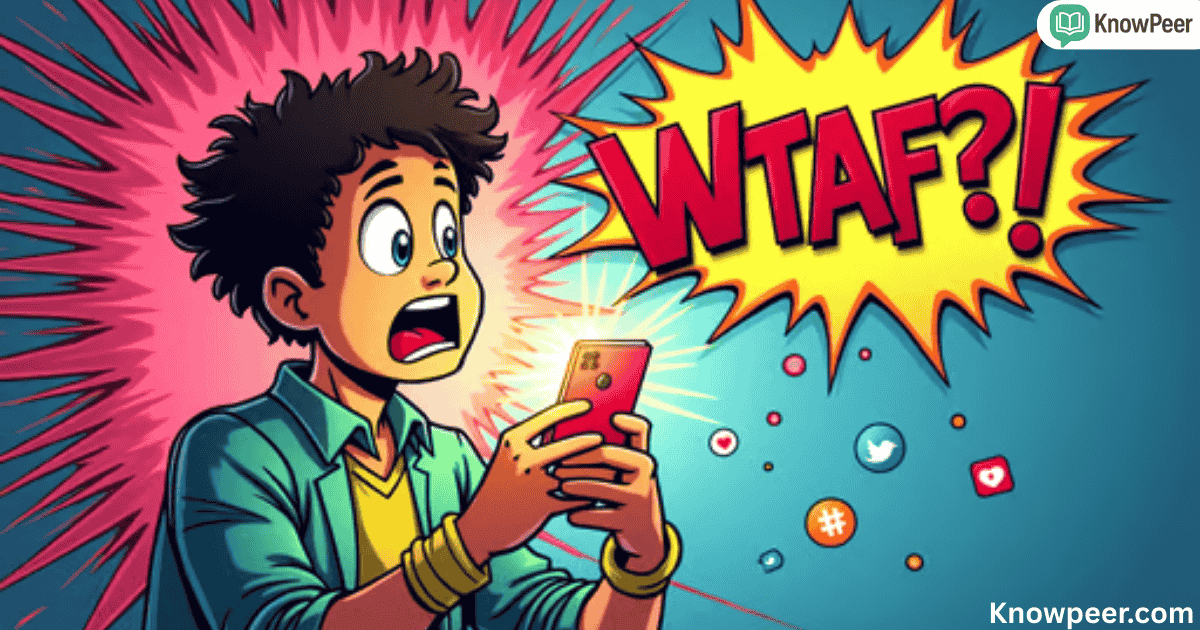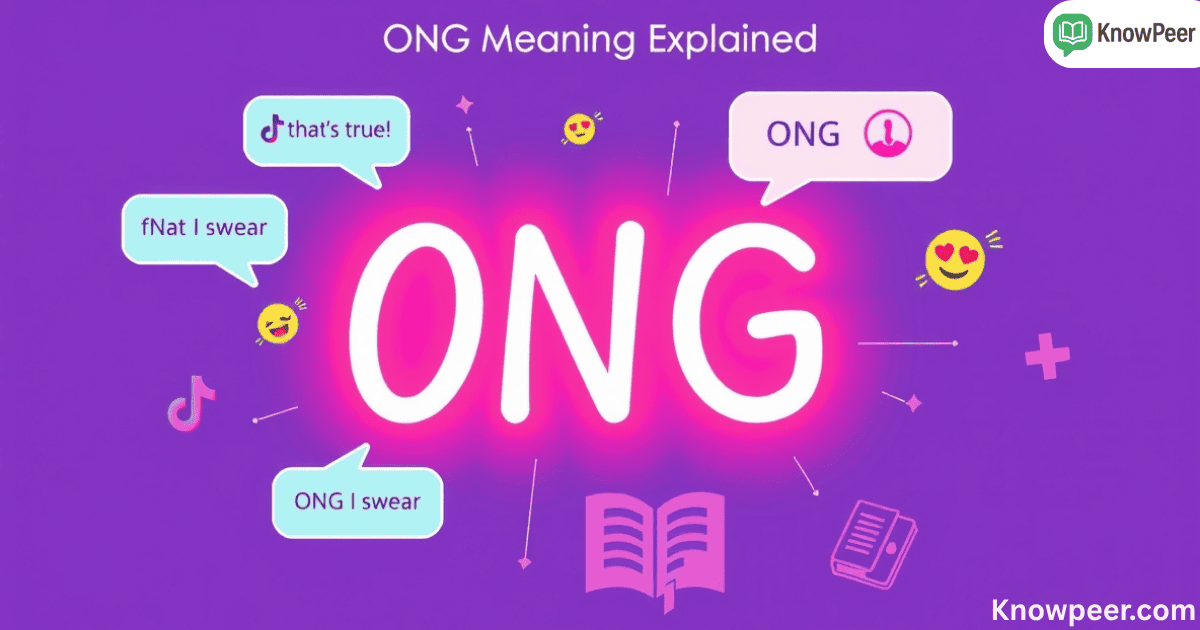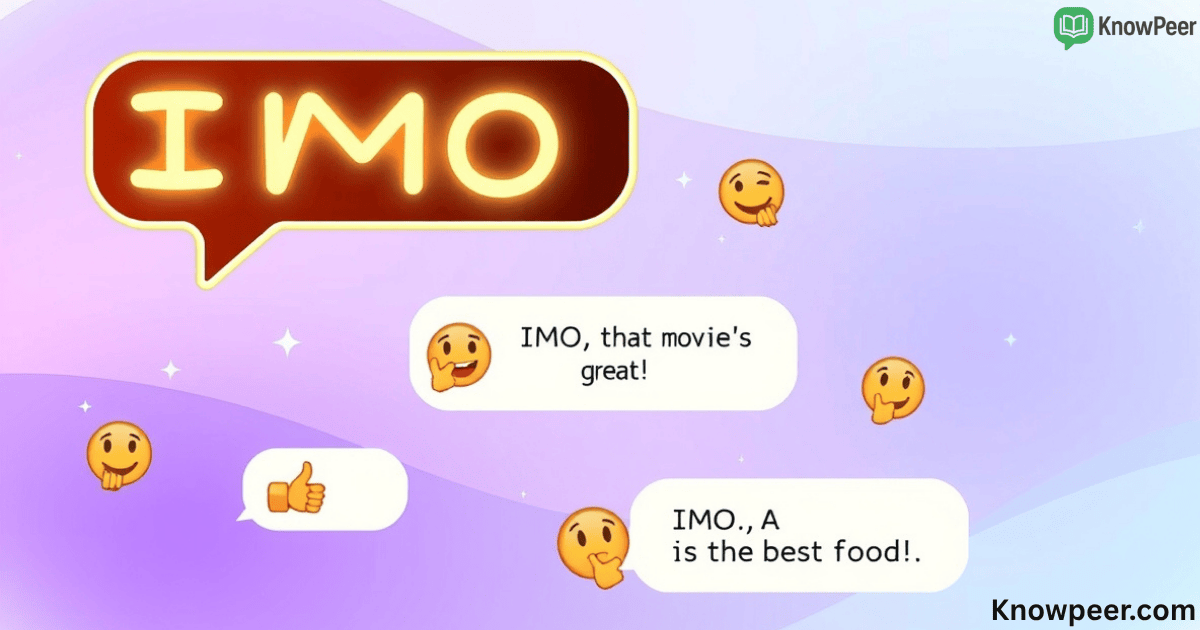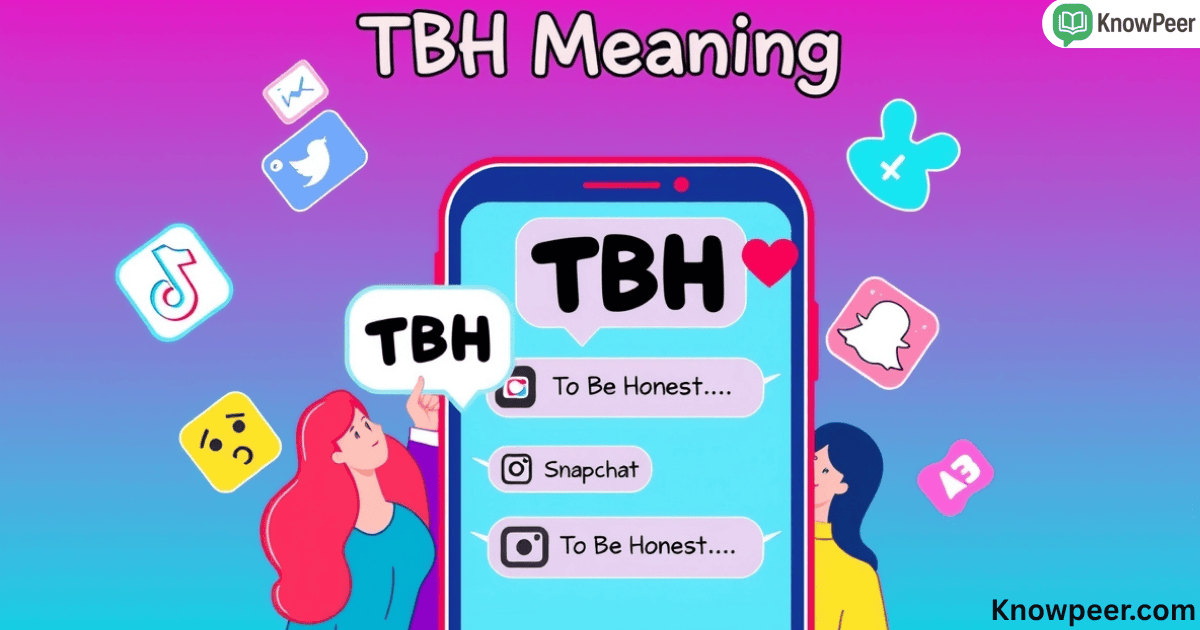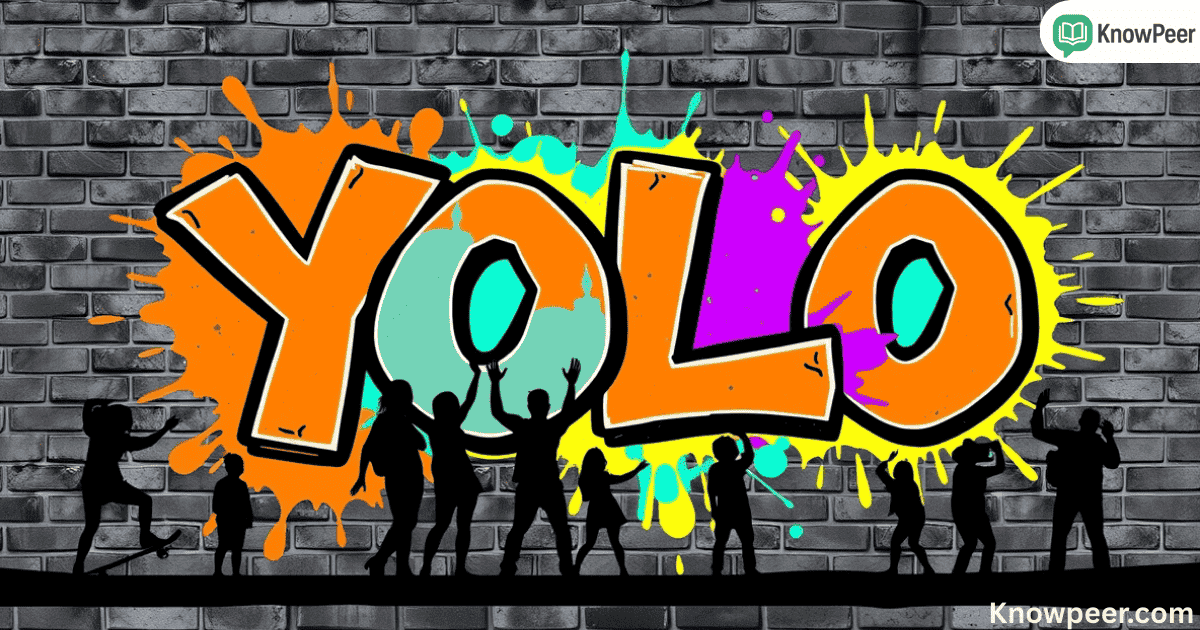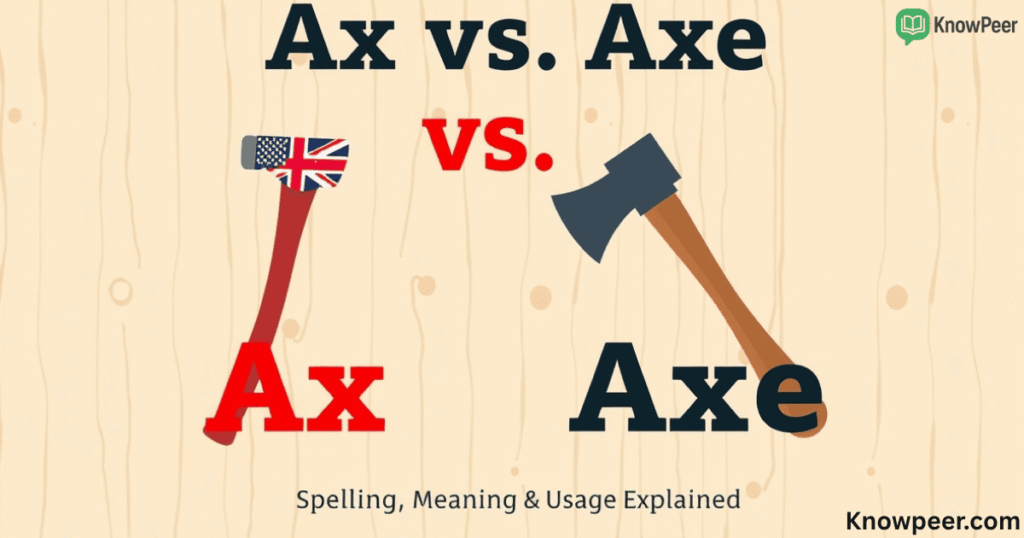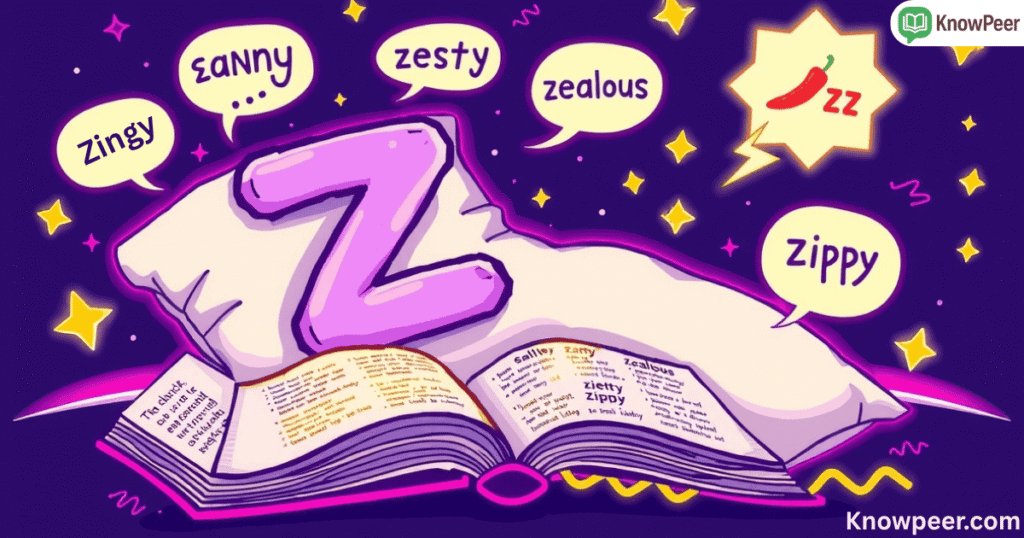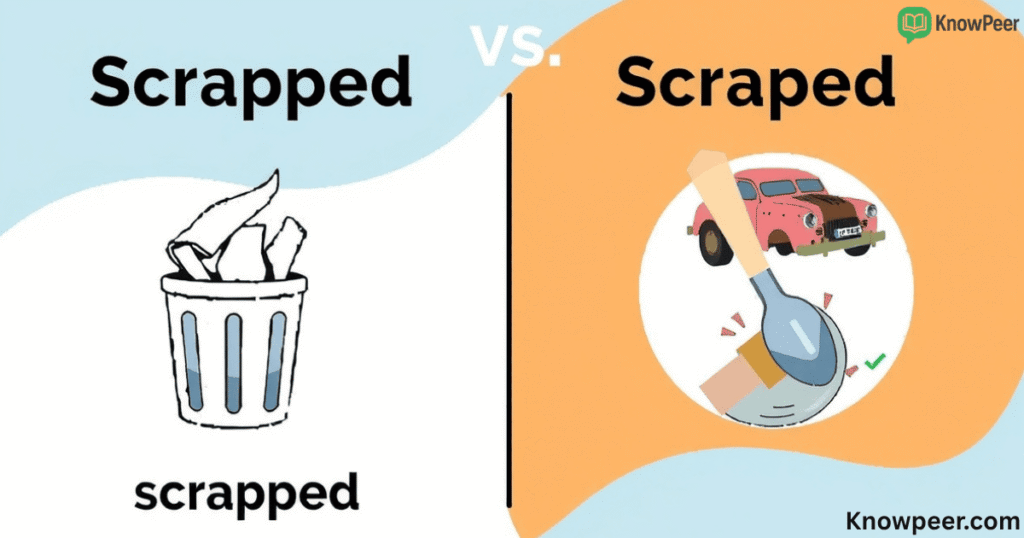Understanding WTAF
The acronym WTAF Meaning is short for “What The Actual F***.” It belongs to a family of slang abbreviations online that express shock, disbelief, or extreme surprise. People use it in texting, casual conversations, and especially on social media. If you’ve ever read something so outrageous that you couldn’t believe it, then WTAF captures that feeling in a short, sharp burst. Unlike formal expressions, it adds a raw tone, and that’s why it spread so quickly in the world of digital acronyms and abbreviations.
The WTAF meaning is close to WTF, but the word “actual” makes it stronger. It signals an even higher level of disbelief, as if the speaker is not just confused but deeply stunned. You’ll often see people typing it in all caps to highlight that intensity. In modern texting language, this kind of emphasis matters because short words must deliver maximum emotional punch. That is why the WTAF definition is often connected with exaggerated reactions and informal English expressions.
Origins and Evolution of WTAF
The story of WTAF is closely tied to the rise of online slang and digital communication. Before people used WTAF, the internet already had WTF, one of the earliest reaction acronyms in chatrooms and gaming forums. However, as modern texting language kept evolving, users started looking for stronger words that carried more intensity. That’s when WTAF slang began to surface. By adding the word “actual,” the phrase created an extra punch of disbelief, making it feel sharper and more dramatic than its simpler cousin WTF. The origin of WTAF is often traced back to the early 2000s, when message boards and meme culture started reshaping how people expressed shock online.
As online slang evolution continued, WTAF grew popular on platforms like Twitter, Reddit, and later TikTok, where short, bold reactions spread fast. Memes played a big role in pushing the phrase into mainstream use, turning it from a niche internet joke into part of the internet slang dictionary. Today, the acronym is used worldwide, especially among younger generations who thrive on slang abbreviations online. Its rise also shows how digital communities constantly upgrade acronyms, creating stronger versions of existing ones to match emotions. Just like OMFG was a step beyond OMG, WTAF became the next level after WTF. This evolution highlights how people online bend language to keep it fresh, powerful, and perfectly suited for quick reactions.
WTAF in Everyday English
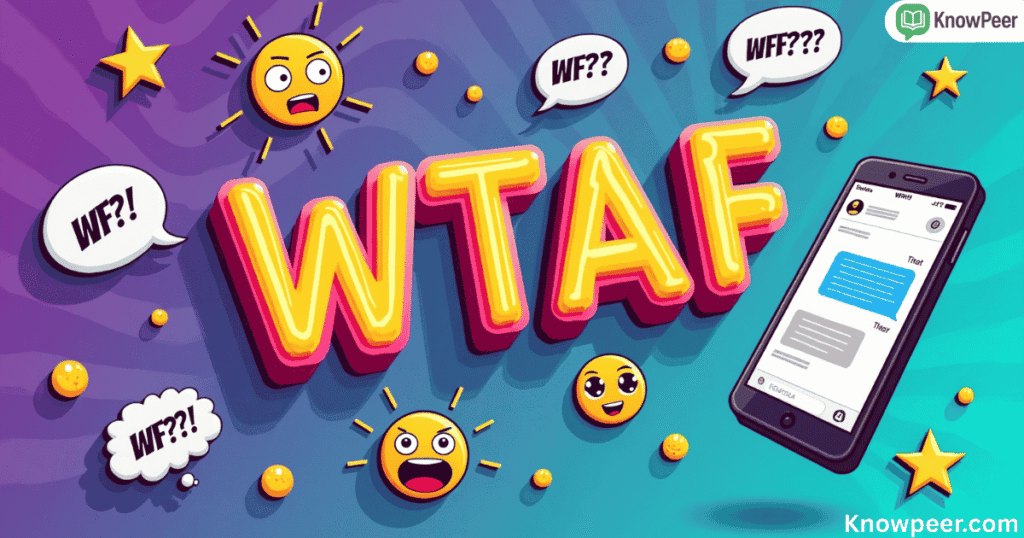
You may wonder how WTAF fits into everyday English. In casual conversations, especially online, it works as a quick reaction. Someone might post a video of a bizarre stunt, and a viewer comments, “WTAF did I just watch?” The phrase is informal, but it has become part of the internet slang dictionary. Still, you won’t find it in professional writing or polite speech, because its tone is too raw.
In British English, the WTAF slang carries a slightly different flavor compared to American use. British speakers often use it with dry humor or sarcasm, while American usage leans toward outright shock. In gaming communities and meme groups, though, the style crosses borders.
| Situation | Example Sentence | Tone |
| Friend posts shocking news | “WTAF is happening right now?” | Disbelief |
| Gaming loss | “WTAF, how did we lose that fast?” | Frustration |
| Viral meme | “This WTAF meme has me crying” | Humor |
| Unexpected message | “WTAF did you just text me?” | Shock |
| Funny video | “WTAF, I can’t stop laughing” | Playful |
These WTAF examples in sentences show how tone and context shape its meaning.
Practical Examples of WTAF
Understanding the WTAF meaning becomes easier when you see it used in natural situations. Imagine scrolling through social media and stumbling on a bizarre video—perhaps someone dipping pizza in orange juice. Your reaction could be a simple “WTAF is happening here?” That short phrase communicates disbelief far more strongly than just saying “What?” In texting, the same logic applies. If a friend suddenly tells you they quit their job without notice, replying with “WTAF did you just do?” shows both shock and confusion. These WTAF in social media and texting moments prove how useful acronyms are in fast-paced conversations.
The WTAF examples in sentences also show how tone shifts with context. In WTAF in gaming, a player might type “WTAF was that lag?” after losing to a glitch. In memes, the WTAF meme meaning is often playful, used as a caption under outrageous or funny images. Even in casual chats, friends use it to exaggerate reactions, like “WTAF, that’s!” The beauty of this slang is its flexibility—it can sound annoyed, amused, or stunned, depending on how it’s delivered.
| Context | Example Sentence | Tone |
| Social media meme | “WTAF did I just watch?” | Amused disbelief |
| Gaming chat | “WTAF was that glitch?” | Frustrated shock |
| Text message | “WTAF, you didn’t tell me that!” | Surprised reaction |
| News headline | “WTAF is going on in politics today?” | Serious disbelief |
| Funny video | “WTAF, I can’t stop laughing” | Playful humor |
Who Uses WTAF?
Understanding who uses WTAF helps explain why it’s so popular. Younger generations, especially those active on TikTok, Reddit, or gaming servers, use it daily. They see acronyms as part of modern texting language, not just slang. For them, saying WTAF is like saying OMG—it’s casual, expressive, and accepted. In contrast, older generations may find it offensive or confusing because they aren’t used to acronyms in communication.
Communities matter as well. Meme lovers, streamers, and online gamers rely on acronyms like LOL, OMG, and WTAF to connect quickly. These popular internet acronyms work as reaction buttons in text form. However, outside of these groups, it may not carry the same playful tone. That’s why WTAF tone and context change depending on where and how it’s used WTAF Meaning. In some places, it’s funny. In others, it may sound rude.
How to Use WTAF Correctly

Many readers wonder how to use WTAF without sounding harsh. The key is context. It’s fine with friends, memes, or casual chats, but it’s not suitable for work emails or serious talks. In professional spaces, people prefer lighter acronyms like OMG or even just “Wow.” Knowing the right time prevents misunderstandings. The strength of WTAF slang can sometimes shock people if they’re not expecting it.
A simple way to understand usage is by comparing it to other acronyms. The WTAF vs WTF debate shows the difference. WTF feels standard now, while WTAF adds more force and humor. OMFG is another level of intensity, often reserved for even bigger surprises. Here’s a quick comparison:
| Acronym | Full Form | Emotional Level | Common Use |
| WTF | What The F*** | Moderate | Everyday shock |
| WTAF | What The Actual F*** | Stronger | Extreme disbelief |
| OMFG | Oh My F***ing God | Intense | Major shock or humor |
Extra Tips and Fun Facts About WTAF
Here’s something fun: WTAF in gaming often appears in highlight reels, where players type it after dramatic moments. It has even inspired WTAF memes that exaggerate shocking events in funny ways. Interestingly, some websites like Scrabble tools and Wordle helpers also list it in their internet slang dictionary, even though it’s not a real dictionary word. This shows how far slang can travel. In the bigger picture, WTAF sits next to other digital acronyms and abbreviations that make up today’s meme culture expressions. For younger generations, it’s just one more piece of the puzzle in the world of generational slang differences.
Conclusion
The rise of WTAF shows how language keeps evolving. Slang abbreviations online turn into common tools of expression when people need quick ways to react. The acronym WTAF explained this perfectly: it’s short, emotional, and fits the speed of social media. While you won’t use it in school essays or business talks, it works well in casual chats, memes, and even in digital gaming communities.
The lasting impact of WTAF in social media is clear. It has joined other common social media acronyms like LOL and OMG, shaping the way people talk online. Its mix of humor and disbelief makes it stand out, and it shows how reaction acronyms like LOL, OMG, OMFG continue to define our digital conversations. As long as people need shortcuts for shock, WTAF in texting will stay part of informal English expressions.

